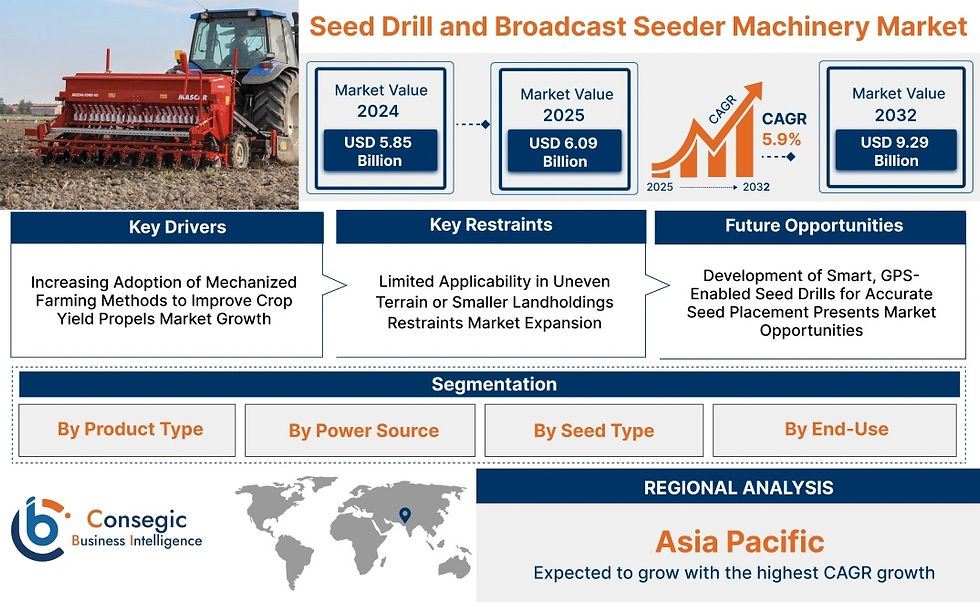Testosterone Replacement Therapy Market: Comprehensive Industry Report
- Anurag ConsengicBusinessIntelligence
- Nov 27, 2024
- 3 min read
Testosterone Replacement Therapy Market Overview
Testosterone replacement therapy (TRT) is a medical treatment used to replace low levels of testosterone in men. It is typically prescribed to men with hypogonadism, a condition characterized by insufficient testosterone production. The Testosterone replacement therapy (TRT)market is expected to continue growing in the coming years, driven by factors such as increasing awareness of TRT benefits, advancements in delivery methods, and expanding indications for its use.
Testosterone Replacement Therapy Market Drivers
Several factors are driving the growth of the TRT market:
Increasing prevalence of hypogonadism: The number of men diagnosed with hypogonadism is on the rise, primarily due to factors such as obesity, aging, and certain medical conditions. This increase in prevalence is directly correlated with the growing demand for TRT.
Rising awareness of TRT benefits: As more research is conducted on the benefits of TRT, awareness among both patients and healthcare providers is increasing. This is leading to a greater number of men seeking TRT as a treatment option.
Expanding indications for TRT: In addition to treating hypogonadism, TRT is being explored for its potential benefits in other conditions, such as metabolic syndrome and depression. This expansion of indications is contributing to the growth of the TRT market.
Testosterone Replacement Therapy Market Restraints
Despite its growing popularity, the TRT market faces certain challenges:
Concerns about potential side effects: While TRT can be effective, there are potential side effects associated with its use, including acne, enlarged prostate, and increased risk of blood clots. These concerns can deter some men from seeking TRT.
Regulatory scrutiny: The use of TRT has come under scrutiny in recent years, with some regulatory bodies raising concerns about its potential for abuse and misuse. This has led to increased regulation of the TRT market.
Limited long-term data: While short-term studies have demonstrated the benefits of TRT, long-term data on its safety and efficacy are limited. This can create uncertainty among patients and healthcare providers.
Testosterone Replacement Therapy Market Opportunities
The TRT market presents several opportunities for growth:
Expanding geographic markets: While the TRT market is primarily concentrated in developed countries, there is significant potential for growth in emerging markets as healthcare systems improve and awareness of TRT increases.
Development of new delivery methods: The development of new and more convenient delivery methods for TRT, such as topical gels and implants, can make the treatment more accessible to patients.
Integration with other therapies: TRT may be combined with other therapies, such as lifestyle modifications and medications, to address underlying health conditions and improve overall patient outcomes.
Testosterone Replacement Therapy Market Key Players
Endo Pharmaceuticals Inc, Pfizer, Inc, Eli Lilly and Company, Bayer AG, Teva Pharmaceutical Industries Ltd, Ferring Pharmaceuticals, Acerus Pharmaceuticals Corporation, Mylan N.V., Upsher-Smith Laboratories, and Biote.
Testosterone Replacement Therapy Market Segmentation
By Product Type: Gel, Injection, Patch, Implantable Pellets, Drugs, and Others
By End User: Hospitals, Homecare, Specialty Clinics, and Others .
Testosterone Replacement Therapy Market Regional Analysis
North America, Europe, Asia-Pacific, Latin America, and Middle East & Africa.
Testosterone Replacement Therapy Market Recent Developments
The TRT market has witnessed several recent developments, including:
Approval of new TRT products: Key players have launched new Testosterone Replacement Therapy products with improved formulations and delivery methods.
Increased focus on personalized medicine: There is a growing emphasis on tailoring TRT treatment to individual patient needs, based on factors such as age, lifestyle, and underlying health conditions.
Ongoing research and development: Research continues to explore the potential benefits and risks of TRT, as well as its optimal dosage and duration of treatment.
Contact us:
Contact no: (US) (505) 715-4344
Other Related Reports:



Comments